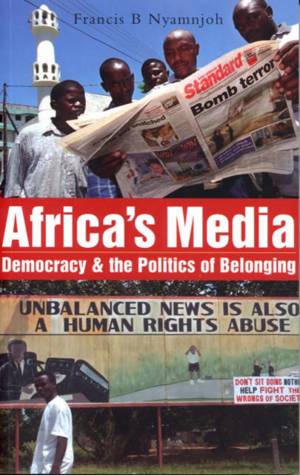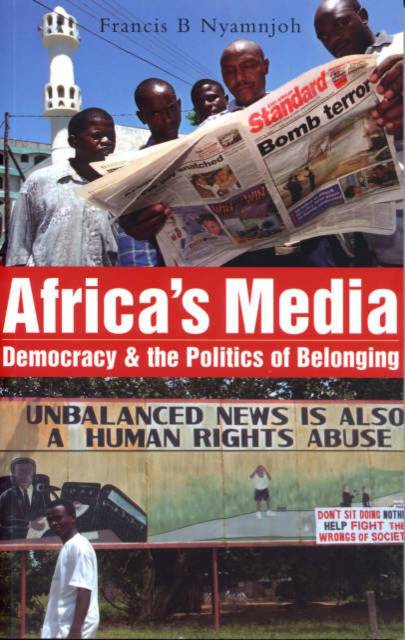
- Afhalen na 1 uur in een winkel met voorraad
- Gratis thuislevering in België vanaf € 30
- Ruim aanbod met 7 miljoen producten
- Afhalen na 1 uur in een winkel met voorraad
- Gratis thuislevering in België vanaf € 30
- Ruim aanbod met 7 miljoen producten
Zoeken
€ 104,95
+ 209 punten
Omschrijving
This major study explores the role of the mass media in promoting democracy and empowering civil society in Africa. The author contextualizes Africa within in the rapidly changing global media and shows how patterns of media ownership and state control have evolved and the huge difficulties under which most African media workers labour. The author also explores the whole question of media ethics and professionalism in Africa. The general analysis is supported by a very detailed unique case study of Cameroon. Nyamnjoh is critical of the Western-derived institutional framework for multi-party democracy that overlooks the social realities of African citizens' multiple identities, and their cultural orientation to communal values. He also concludes that African governments have gone very little way in encouraging independent media, but that the media themselves must also share some of the blame.
Specificaties
Betrokkenen
- Auteur(s):
- Uitgeverij:
Inhoud
- Aantal bladzijden:
- 320
- Taal:
- Engels
Eigenschappen
- Productcode (EAN):
- 9781842775820
- Verschijningsdatum:
- 1/05/2005
- Uitvoering:
- Hardcover
- Formaat:
- Genaaid
- Afmetingen:
- 145 mm x 220 mm
- Gewicht:
- 498 g

Alleen bij Standaard Boekhandel
+ 209 punten op je klantenkaart van Standaard Boekhandel
Beoordelingen
We publiceren alleen reviews die voldoen aan de voorwaarden voor reviews. Bekijk onze voorwaarden voor reviews.








